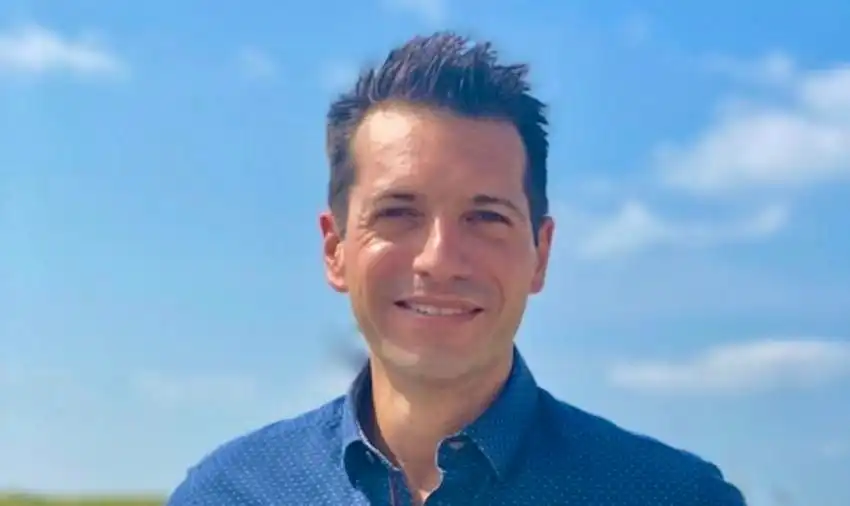Home>Michael Allegretti: “We as businesses need to continually update, how are we helping to solve real problems?”
20.08.2020
Michael Allegretti: “We as businesses need to continually update, how are we helping to solve real problems?”
Michael Allegretti is the Chief Strategy Officer at Rubicon, a software company using technology to drive environmental innovation. Throughout his multi-faceted career in policy, he has concentrated on leadership and problem solving, and attributes his interests partly to his time at Sciences Po. “Sciences Po taught me that focus: how do you lead, whether it's the highest level of the French Presidency down to Parliament or city governments, in a way that solves problems for people?” Allegretti says. “That is ultimately what I believe good public policy is about, solving problems in a cost effective and fair way.”
Allegretti was a student at Boston College, aspiring to minor in French, eager to improve his language skills, and looking for a rigorous study abroad education. He remembers hearing “Sciences Po was the one opportunity for an American to study abroad and do truly deep academic work, as well as experience all of the joys that go along with that Junior year abroad.” Once in France, he found that the academic experience lived up to its reputation, remembering “strict rigor around the way you had to present your ideas.” Allegretti struggled at first. “I truly, for the first time in my life, had so much I wanted to say and express, but because of the language and because of the structure, I didn't know how to do that.” He ultimately found success in the French education system however, describing how working within its structure “made me a better student, and it made me a more concise and clearer thinker.” Allegretti reminisces fondly on a favorite class, international relations, and student life in Paris, including winning a Mr. and Mrs. Sciences Po competition.
Discussing his career trajectory, Allegretti recounts how “going to Sciences Po provided me with a rigorous education focused on not really politics per se, but on public policy, and particularly international public policy and international relations. And it informed my time, certainly early in my career.” He served first as Senior Adviser on policy with an organization called The Climate Group, then at the Manhattan Institute think tank, before beginning a second chapter of his career running for the United States House of Representatives. “While the Mr. and Mrs. Sciences Po competition maybe had some role in that,” he says jokingly, “I think far more important was learning the examples,” he says. His experience abroad allowed him to take “some of the best practices from what leaders in the French Parliament and French Presidency had done to win their campaigns and wage their campaigns.”
Allegretti now works at the intersection of business, technology, and government, especially city government, and believes that “Sciences Po helped my education and helped me understand the unique challenges of city governments, not just here in the States, but abroad as well.” For policymakers addressing challenges in regulation and emerging technologies, he insists it has to be a partnership. “The overwhelming majority of people in government are serving for good reasons,” he adds. “It has to be a give and take in a partnership to bring new technologies and new ideas to market, and at the same time, to ensure that we're being good stewards of tax dollars and the public trust.” He believes that businesses should be constantly reestablishing the value they provide to policymakers and governments. “We as businesses need to continually update, how are we helping to solve real problems?
For current students and young graduates, Allegretti offers up some advice. “It is critically important for everyone who wants to go into public policy … to know what the debates are, and you need to know them from both sides. If you're a liberal, you need to know that the conservative angle and vice versa,” he says. “We have to stop reading the news that suits our perceived worldview.” He also emphasizes the importance of flexibility and empathy. “We need to have empathy for the people with whom we are working, if you're in the private sector, for the people in the public sector, and if you're in the public sector for people in the private sector.” Approaching common goals, he believes, is key. “When you find that common ground, you could actually start to create progress. I think we lose sight of some of those basic things.”
“My time at Sciences Po was a blessing and one that I hope many other, certainly other American, students can experience,” Allegretti concludes fondly. “The institution is thriving, and it's been great to see it continue to evolve, particularly over the last 10 years. I think its future is very bright.”
